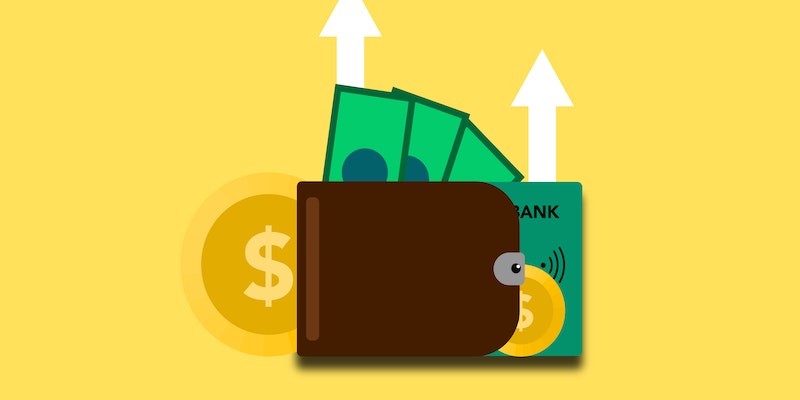
Are you a 16-year-old that wants to get your first credit card? Maybe you're trying to build a good history of financial management, like budgeting and paying on time, or it's for convenience. Whatever the case, obtaining a credit card at sixteen is possible - but it can take some effort and involve certain restrictions.
We'll discuss the advantages and disadvantages of getting a credit card and the options available if you're still getting ready. Read on to learn more about how to set yourself up for future financial success.
How Old Do You Have to Be to Get a Credit Card?

Generally, you must be at least 18 years old to apply for a credit card. However, there are some exceptions. If a parent or guardian signs for the credit card on behalf of the minor, then they can open a card when they turn 16.
There's also the option of getting a secured credit card with no age requirement, but these usually come with higher fees and interest rates.
What Credit Cards Can 16-Year-Olds Get?

If you're 16 and looking for a credit card, your best bet is to find one allowing parental co-signing. This credit card will let you take out a credit card in your name while having the support of a responsible adult who can help ensure payments are made on time.
Some cards also offer special bonuses or rewards for using them responsibly.
How Becoming an Authorized User Affects Your Credit
If you are 16 and a parent or guardian adds you as an authorized user on their credit card, it can positively affect your credit score. As long as the account is well-managed and in good standing, having access to a line of credit will help build your financial history.
However, it's important to remember that if the primary cardholder doesn't pay their bills on time or misses payments, this could negatively impact your credit rating.
Alternatives to Credit Cards for 16-Year-Olds
If you need more time to get ready to take out a credit card, don't worry! There are other options available for building credit. For example, consider opening a secured savings account or prepaid debit card.
Both will help you learn the basics of budgeting and money management without any risks associated with credit cards. They may not be as convenient as having an actual card, but they can be just as effective in helping you achieve financial stability in the long run.
Advantages of Getting a Credit Card at 16
Builds credit history
A credit card can help you establish a good credit history, essential for accessing future loans or other financial products.
Teaches budgeting and money management
Knowing how to manage your finances is an important skill, and having a credit card allows teens to practice this responsibility without major risks.
Introduces convenience
With a credit card, you can purchase items quickly and easily online or over the phone; there's no need to carry cash or worry about checks bouncing.
Offers rewards programs
Many cards offer bonus points, discounts, or other incentives for using them responsibly, which can be very beneficial in the long run.
Can provide a safety net in case of emergency
A credit card can be useful if you're in a tight spot and need funds to pay for an unexpected expense.
Gives peace of mind when traveling
When going on vacation, it's nice to have the security of knowing that you have access to money should any emergencies arise while away from home.
Helps build self-confidence
Managing a credit card responsibly is a great way for teens to practice taking responsibility for their finances and gain confidence in their abilities.
Offers flexibility with payments
Unlike other types of loans, credit cards offer more flexibility with repayment terms, which can make them an attractive option for those wanting to get a handle on their finances.
Disadvantages of Getting a Credit Card at 16
Can create debt
If you're not careful, getting into trouble with a credit card is easy. High-interest rates and fees can quickly increase, especially if you don't pay your balance on time.
Leads to overspending
Credit cards can make it too easy to buy things without considering the cost, leading to impulse purchases or more spending than you can afford.
May have annual fees
Some cards charge an annual fee for using them, which can be expensive depending on the card type and provider.
Not all cards offer rewards programs
If you're looking for a way to earn rewards points or discounts, not all credit cards offer these benefits.
Requires good credit
To get a credit card, you usually need good or excellent credit. This could be difficult for teens who don't have any credit history.
It can be harder to monitor spending
With the physical act of handing over money when making a purchase, it can be easier for some people to keep track of their spending and set limits.
How Credit Works Before Getting a Credit Card
Before you take out a credit card, it's important to understand how the system works. When you apply for a credit card, the lender will review your credit history and score to determine your eligibility - this is known as a “hard” or “soft” pull.
A hard pull will lower your score slightly but can still be beneficial if it leads to a successful application. On the other hand, a soft pull won't affect your score at all.
Your credit score is determined by several factors, such as payment history (did you pay bills on time?) and existing debt (do you already have any loans or other financial products?). It's also affected by the length of your credit history – the longer it is, the better it looks to lenders.
Once your credit score and history have been reviewed, the lender will decide if you are eligible for a credit card. This decision is based on your income, current debt load, and spending habits.
If approved, your financial situation will determine the credit limit – how much do you make? How much debt do you already have? Are you likely to pay off your balance in full each month? The more established your financial habits are, the higher your potential limit could be.
FAQS
Can you get a Visa card at 16?
Yes, you can get a Visa card at 16 if you have a responsible adult willing to be an authorized user on the account. This person will need to provide proof of income and other financial information for the application process to be successful.
What credit age is good?
Generally, a good credit age is anything between 7 and 10 years. This means you have responsibly managed your finances for 7 to 10 years, making lenders more likely to approve you for loans or credit cards.
Can I get a credit card without a job?
No, it would be best to have some income or financial resources to apply for a credit card. Lenders will review your application and determine if you can afford the payments.
Conclusion
Ultimately, whether or not you can obtain a credit card at 16 depends on many factors. You must meet each lender's criteria and be an authorized user on another account before being approved for a credit card. It is important to remember that no matter what age you are, it is essential to educate yourself before signing up for any financial product. Determining if you are ready for credit now or should wait until later can save you money.



